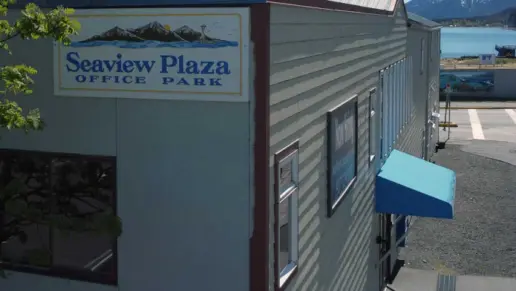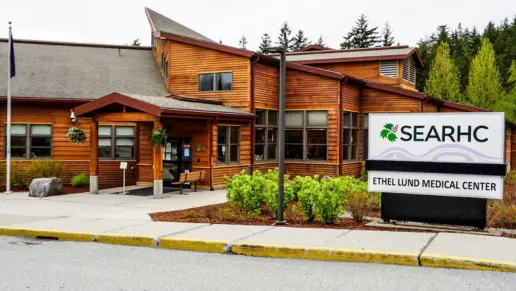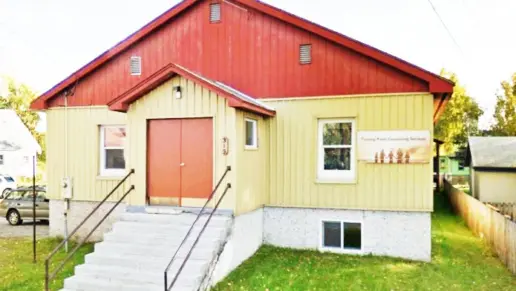They have great customer service. My good friend recommended he was there for drug rehab. He is still clean and recommended I try this place for my alcohol abuse. I want to get sober like he did at this place.
About Alaska Dream Center
Alaska Dream Center, located in Palmer, Alaska, is a faith-based drug and alcohol rehab for adults. They offer long-term residential care and aftercare planning and support, including specialized services for young adults, homeless and indigent persons, and persons with co-occurring addiction and mental illness.
Residential
The Alaska Dream Center residential program allows clients to focus on their recovery in a highly structured and supportive environment featuring inviting, home-like amenities in a wilderness setting. Clients engage in intensive individual, group, and family counseling and recovery-focused life-skills training. The program prioritizes clients’ spiritual healing as a foundation for lasting sobriety and includes daily prayer, Bible study, and devotions. Clients may also participate in vocational training and work therapy to develop essential skills to support their reintegration into their home, workplace, and community. Clients may choose to enroll in an extended discipleship program following the standard nine months of treatment.
Aftercare
The center’s aftercare services provide a complete continuum of care aligned with clients’ evolving needs. These services may include peer coaching, housing and employment assistance, and referrals for additional medical, mental health, and social service programs.
Payment
Alaska Dream Center is a nonprofit organization funded primarily through public grants and charitable contributions. Services are provided at low or no cost to clients who are uninsured or underinsured. The center also works with major insurers, such as Aetna, Cigna, BlueCross Blueshield, Humana, and United Healthcare. Contact your provider to verify coverage, because out of network benefits can vary.
Rehab Score
Other Forms of Payment
Addiction Treatments
Levels of Care
Treatments
The goal of treatment for alcoholism is abstinence. Those with poor social support, poor motivation, or psychiatric disorders tend to relapse within a few years of treatment. For these people, success is measured by longer periods of abstinence, reduced use of alcohol, better health, and improved social functioning. Recovery and Maintenance are usually based on 12 step programs and AA meetings.
During drug rehab in Alaska, you'll receive a combination of medical and psychotherapeutic treatments that are designed to treat drug dependency. The goal of drug rehab is to break this dependency and help you develop the skills to maintain a drug-free life.
Many of those suffering from addiction also suffer from mental or emotional illnesses like schizophrenia, bipolar disorder, depression, or anxiety disorders. Rehab and other substance abuse facilities treating those with a dual diagnosis or co-occurring disorder administer psychiatric treatment to address the person's mental health issue in addition to drug and alcohol rehabilitation.
A combined mental health and substance abuse rehab has the staff and resources available to handle individuals with both mental health and substance abuse issues. It can be challenging to determine where a specific symptom stems from (a mental health issue or an issue related to substance abuse), so mental health and substance abuse professionals are helpful in detangling symptoms and keeping treatment on track.
Opioid rehabs specialize in supporting those recovering from opioid addiction. They treat those suffering from addiction to illegal opioids like heroin, as well as prescription drugs like oxycodone. These centers typically combine both physical as well as mental and emotional support to help stop addiction. Physical support often includes medical detox and subsequent medical support (including medication), and mental support includes in-depth therapy to address the underlying causes of addiction.
Programs


Clinical Services
Group therapy is any therapeutic work that happens in a group (not one-on-one). There are a number of different group therapy modalities, including support groups, experiential therapy, psycho-education, and more. Group therapy involves treatment as well as processing interaction between group members.
In individual therapy, a patient meets one-on-one with a trained psychologist or counselor. Therapy is a pivotal part of effective substance abuse treatment, as it often covers root causes of addiction, including challenges faced by the patient in their social, family, and work/school life.
Life skills trainings involve all the skills a person must have in order to function successfully in the world. These include time management, career guidance, money management, and effective communication. Truly successful addiction recovery is based on the ability to not only live substance-free, but to thrive. Life skills teaches the practical necessities of functioning in society, which sets clients up for success in life, and therefore sobriety.
Contact Information
8117 East New Hope Street
Palmer, AK 99645


